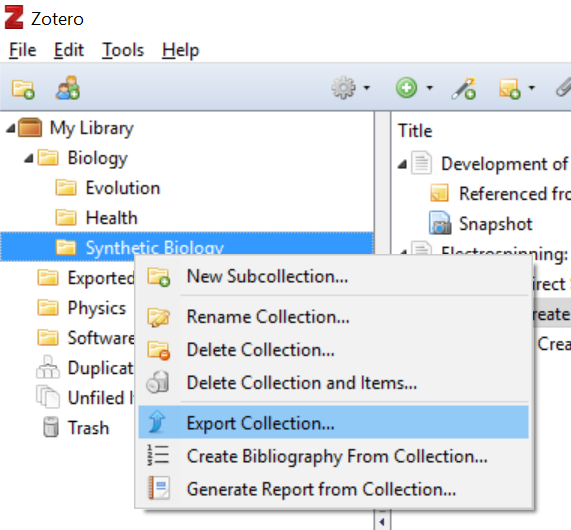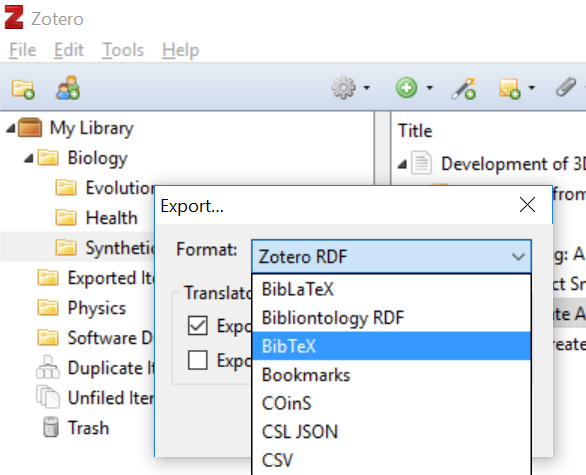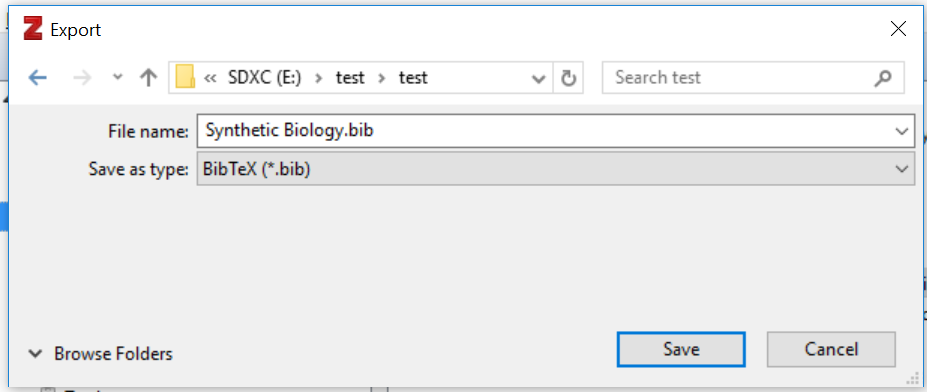 |
Developer's Diary
Software development, with Terry Ebdon
|
 |
Developer's Diary
Software development, with Terry Ebdon
|
I've shown you how to use citations in Doxygen markdown, let's take it a step further and integrate with Zotero citations.
To export a Zotero collection right click on it and select export:

On the export pop-up select BibTeX from the format drop-down, then click OK.

Save as type BibTeX (*.bib) in the same folder as your Doxyfile:

Edit your Doxyfile and locate the CITE_BIB_FILES entry. Add the BibTex file name after the "=" sign:
CITE_BIB_FILES = test.bib "Synthetic Biology"
My Doxyfile references two BibTeX files: test.bib is from yesterday's post, and "Synthetic Biology" is the file exported from Zotero.
In the exported BibTeX we can see the citation for the first article is lee_development_2016:
@article{lee_development_2016,
title = {Development of 3D {Microvascular} {Networks} ...
issn = {2192-2659},
url = {http://onlinelibrary.wiley.com/doi/ ...},
doi = {10.1002/adhm.201500792},
...
}
Edit the markdown and cite this article:
# Hello World {#mainpage}
Groovy in Action is an excellent book. \cite gina2e
## Synthetic Biology
We use an approach similar to the concise reference phylogeny proposed by Lee et
al. \cite lee_development_2016 with minor modifications
Run the doxygen command, as described yesterday, to create the latex and / or HTML files. If a PDF is required then run the make file that Doxygen created in the latex folder. The citations will appear similar to the ones created yesterday. As the BibTex @article for lee_development_2016 contains a URL the corresponding bibliography entry will be hyperlinked, on the Doxygen generated web page.
Example PDF bibliography, generated by Doxygen, from the above markdown:

Find me coding on GitHub, networking on LinkedIn, answering questions on Stack Exchange and hanging out on twitter.